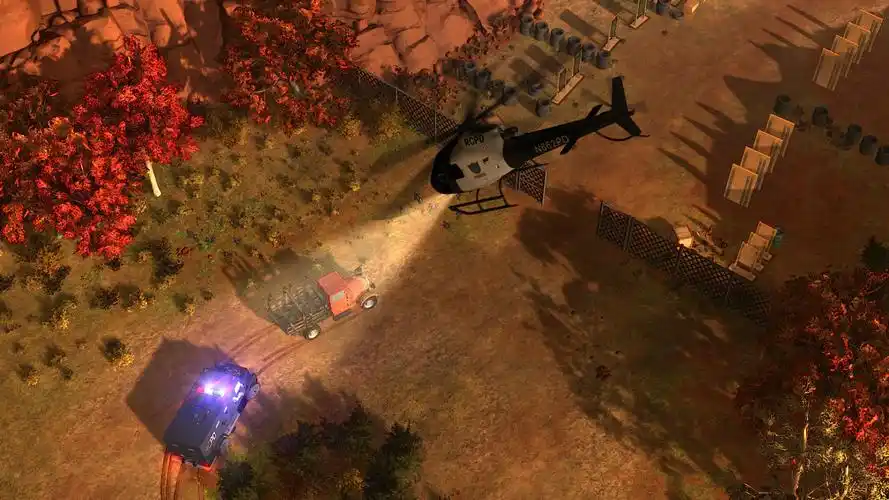The Evolving Frontier: AI Breakthroughs, Industry Consolidation, and the Quest for Ethical Play
The video game industry, a behemoth of entertainment and technology, never stands still. The past few months have been a whirlwind of groundbreaking technical demonstrations, significant corporate acquisitions, and deepening conversations about the very future of game development and consumption. This article delves into the most impactful recent updates and gathers insights from industry experts on what these shifts truly mean.
The Generative AI Revolution: From Novelty to Toolkit
Generative AI has moved from a buzzword to a tangible, and somewhat controversial, force in game creation. Recent updates from major engine providers like Unity and Unreal Engine have deeply integrated AI tools. Unity's Muse and Sentis platforms promise to accelerate prototyping and enable new runtime experiences, while Unreal's partnership with companies like Replica Studios aims to deliver hyper-realistic AI-powered voice acting.
However, the reception is mixed. Dr. Evelyn Reed, a tech ethicist at MIT's Future of Play Lab, cautions, "While AI can democratize asset creation and alleviate tedious tasks, we risk homogenizing artistic expression. If thousands of games use the same base models for dialogue or texture generation, we lose the unique, hand-crafted soul that defines our most beloved worlds. The key will be in using AI as a brush, not the painter."
The ethical concerns are paramount. The use of copyrighted material to train these models without explicit consent has sparked lawsuits and fierce debate within developer communities. The consensus among experts is that clear ethical guidelines and fair compensation models for training data are urgently needed to avoid stifling innovation and exploiting artists.
Consolidation Continues: Embracer's Restructure and the New Players
The era of mega-acquisitions, highlighted by Microsoft's purchase of Activision Blizzard, has entered a new phase. The most startling recent update is the sweeping restructuring of the Embracer Group. After a period of aggressive acquisition sprees, the conglomerate is now divesting assets and shutting down studios, including the recently closed TimeSplitters developer Free Radical Design. This has sent shockwaves through the industry, highlighting the fragility of development studios under large corporate umbrellas.
Michael Guerrero, a veteran industry analyst, notes, "Embracer's situation is a classic case of over-leverage and unmet expectations. It serves as a cautionary tale that growth through acquisition is a high-risk strategy, especially when reliant on a single, failed investment deal. We're likely to see a market correction, with publishers focusing more on organic growth and stable, managed portfolios rather than unchecked expansion."

Meanwhile, new power players are emerging. Sony continues its strategy of acquiring support studios to bolster its first-party exclusives, and tech giants like Netflix are making serious plays by building out their gaming divisions from the ground up, focusing on mobile and narrative-driven experiences tied to their IP.
The Platform Wars: Exclusivity, Subscription, and Cloud Gaming's Slow Burn
The battle for your living room and handheld device is intensifying. Microsoft's Game Pass remains the industry-leading subscription service, but Sony is aggressively revamping its PlayStation Plus offerings. The recent update of PS Plus adding game trials for major titles is a direct competitive move.
The debate over exclusivity is hotter than ever. With Microsoft making previously exclusive titles like Sea of Thieves multiplatform, the traditional console war lines are blurring. Sarah Chen, a gaming journalist, observes, "We're moving from a model of hardware exclusivity to ecosystem exclusivity. The goal is no longer to sell you a box, but to lock you into a subscription service, a storefront, or a cloud platform where you build your library. Your loyalty is to the service, not the plastic shell."
Cloud gaming, long promised as the "future," continues to be a technology in waiting. While services like NVIDIA GeForce Now offer a technically impressive experience, widespread adoption is still hampered by internet infrastructure limitations and consumer preference for native playback. Experts believe true mainstream adoption for cloud gaming is still half a decade away.
Indie Innovation and the "Comfy Core" Resurgence
Amidst the corporate maneuvering and tech upheaval, the indie scene remains the industry's beating heart. A fascinating recent trend is the rise of what some call "Comfy Core" games. Titles like Balatro (a poker-based roguelike) and Animal Well (a dense, non-combat Metroidvania) have achieved massive success by focusing on unique, satisfying mechanics and atmospheric worlds rather than photorealism or cinematic scale.
Mark Foster, an indie developer and founder of Skeleton Crew Studio, says, "Gamers are craving originality and soul. They're finding that in experiences that are thoughtfully designed, mechanically deep, and often smaller in scope. Tools like Unity and GameMaker are more accessible than ever, allowing small teams to create polished, compelling games that compete directly with AAA blockbusters for players' time and affection."
This trend underscores a vital truth: no amount of AI or corporate consolidation can replace raw, creative ingenuity.
Looking Ahead: A Future of Possibility and Peril
The landscape of deep game news is a tapestry of exciting innovation and sobering reality checks. The integration of AI holds incredible potential but must be navigated with careful ethical consideration. Industry consolidation brings beloved IP under new management, for better or worse. And through it all, players are voting with their wallets and time, supporting a diverse range of experiences from the corporate mega-blockbuster to the heartfelt indie gem.
The future of gaming is not a single path but a branching narrative. The choices made now by developers, executives, and platform holders will determine whether this future is one of expansive creative freedom or walled gardens of algorithmically generated content. One thing is certain: the game is far from over.


















